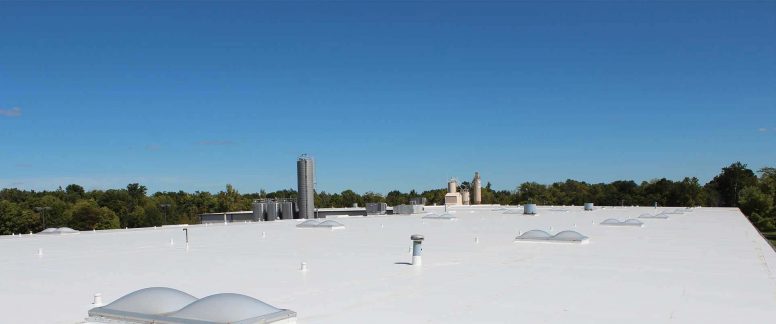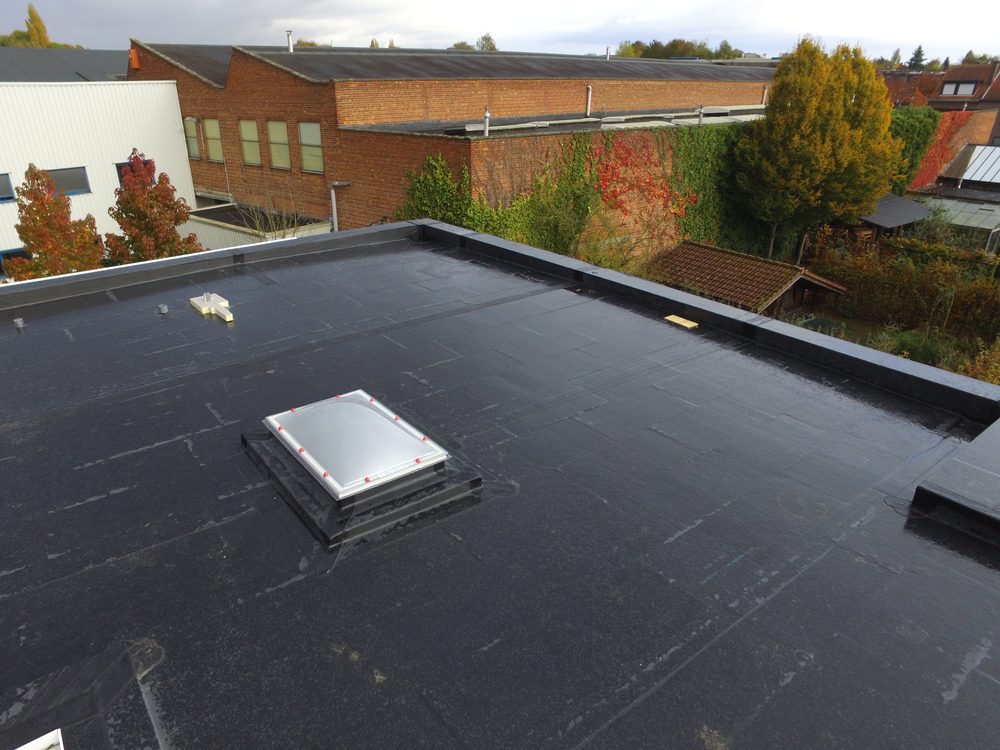Roof Installation Sydney Services Industrial Roof Replacement Services Sydney
Roofing Contractor Metal Roofing Sydney Commercial Roofing Technology Sydney
The impression of weather on commercial roof replacement scheduling is profound and multifaceted - Commercial Roof Sydney Estimate. It performs an important role in determining the feasibility of such tasks and may affect timeframes, budgets, and overall project outcomes
Seasonal variations, including excessive temperatures, heavy rains, and snow accumulation, significantly affect the roofing course of. Roofing materials typically have specific temperature thresholds within which they can be utilized effectively. For instance, sure adhesives might require warmer temperatures to cure correctly, making chilly weather a difficult consider scheduling.
Rain poses another problem. Wet materials can result in problems similar to compromised adhesion and long-term structural integrity points. Scheduling roof replacements during the rainy season can lead to delays and even complete halts in work, notably for flat roofs where pooling water could also be a priority.
Roofing Specialist New Metal Sydney Commercial Roofing Sydney Australia
Wind is also a important factor to contemplate. High winds can pose safety dangers for roofing crews and increase the probability of accidents on website. This necessitates careful planning to ensure that replacement operations are conducted in secure circumstances, further affecting the timeline of the project.
The geographic location of a commercial property plays a significant position in this scheduling dilemma. Areas prone to harsh climates or extreme weather occasions, corresponding to hurricanes, tornadoes, and blizzards, require a different approach to scheduling roofing initiatives. Contractors should be proactive in planning around these potential disruptions.
Moreover, effective communication between the contractor and the property manager is significant. Regular updates about weather forecasts can help make knowledgeable choices relating to when to proceed or halt work. Collaborative planning can result in more efficient project administration and higher preparedness for sudden weather occasions.
Residential Roofing Services Sydney Commercial Roofing Upgrades Sydney

It's also price noting that delays as a result of antagonistic climatic conditions can result in elevated costs. As labor and material costs fluctuate all yr long, the unique estimates may not be viable. This pressure on budgets is yet one more side of the influence of weather on commercial roof replacement scheduling.
Post-replacement points such as leaks or damages can arise if the roof was not installed under optimum conditions. Inadequate curing or sealing throughout harsh weather can lead to issues that necessitate additional maintenance or repairs quickly after installation. These follow-up points add to the general costs and will strain the relationship between contractors and purchasers.
Construction timelines usually are not just affected by the direct influence of weather. Factors such as humidity, temperature variations, and the potential for surprise weather events additionally require constant reassessment of the schedule. Roofing professionals have to account for these variables and stay flexible as they adapt to real-time circumstances.
Technological developments have introduced new materials and set up strategies that offer extra versatility in challenging weather scenarios. Some roofing systems are designed to be extra resilient against extreme circumstances, allowing for greater flexibility in scheduling and execution. This innovation can mitigate a variety of the traditional challenges posed by weather variations (Top-Rated Commercial Roofing Contractors Sydney).
Commercial Roof Replacement Costs Sydney Sydney Commercial Roof Replacement Advice
In abstract, the influence of weather on commercial roof replacement scheduling can't be overstated. Proper understanding of seasonal trends and contingencies for opposed circumstances is important for a easy project. A proactive approach that emphasizes communication, planning, and suppleness can significantly mitigate the challenges posed by weather impacts.
All stakeholders concerned must perceive that whereas they can anticipate many climatic conditions, the unpredictability of nature does exist. This reinforces the importance of getting contingency plans in place to deal with any unforeseen circumstances which will arise through the roofing project. Adapting to weather-related challenges can save time, costs, and complications in the long run.
Therefore, the mixing of weather considerations into the planning and execution of business roof replacements not only facilitates timely project completion but also enhances the quality and longevity of the work performed.
In conclusion, the impact of weather on commercial roof replacement scheduling is an essential issue that should be managed thoughtfully. It requires a blend of expertise, planning, and flexibility to realize profitable outcomes while minimizing potential setbacks. blog here By acknowledging these nuances, property managers and roofing contractors can work together to ensure that tasks proceed as easily as potential, amidst the ever-changing weather patterns they face.
Metal Roof Contractors Sydney Sydney Commercial Roof Replacement Company
- Weather patterns considerably affect the availability of roofing crews, as adverse conditions can lead to rescheduling or delays in project timelines.
- Seasonal trends, such as heavy rain or winter storms, dictate probably the most favorable months for roof replacement, impacting planning and budgeting.
- High humidity levels can have an effect on the drying times of materials, necessitating adjustments in scheduling to ensure proper set up and longevity.
- Wind gusts can pose safety risks, forcing contractors to postpone work to protect workers and materials during installation.
- Extreme temperatures can result in material degradation; thus, roofing projects may be scheduled throughout milder weather to take care of material integrity.
- Unpredictable weather modifications can lead to increased prices and useful resource allocation, requiring contingency planning within project schedules.
- Local weather forecasts are essential for anticipating delays, ensuring well timed communication between contractors and property owners about potential rescheduling.
- Weather-related events, like hailstorms, could lead to sudden spikes in demand for roof replacements, affecting prices and availability of skilled labor.
- Roofing materials often have specific temperature and moisture requirements during installation, influencing the selection of replacement materials based on projected weather conditions.
- Geographic location plays a vital position, as certain regions experience distinctive weather patterns that may have an result on not only scheduling but also the sturdiness of the roofing systems put in.undefinedWhat weather conditions can delay commercial roof replacement?
Severe weather conditions such as heavy rain, snow, excessive winds, and excessive temperatures can considerably delay the scheduling of economic roof replacement. These conditions pose safety dangers for employees and can have an effect on the materials' adhesion and longevity.
Commercial Roofing Remove Replace Sydney Commercial Roof Assessment Sydney
How does temperature affect roofing materials during installation?
Temperature performs a vital function in the curing strategy of roofing materials. Extreme warmth can cause materials to turn into too soft, whereas very low temperatures might impair their capacity to adhere correctly. Working within the manufacturer’s beneficial temperature range is important for optimum performance.
What is the most effective sites time of 12 months for commercial roof replacement?
Generally, late spring to early fall is considered the most effective time for commercial roof replacement because of milder temperatures and decreased precipitation. This period allows for extra favorable working conditions, making certain a faster and safer installation process.
Industrial Asbestos Roofing Contractors Sydney Flat Commercial Roof Replacement Sydney
How can weather forecasts affect scheduling decisions?
Weather forecasts present important insights for planning roof replacement initiatives. By monitoring forecasts, contractors can modify schedules to reduce work disruptions, thus guaranteeing each security and effectivity through the set up.
What precautions should contractors take when weather conditions change unexpectedly?
Metal Roofing Contractors Sydney Commercial Roof Renovation Sydney
Contractors ought to have contingency plans prepared, similar to securing materials and equipment, and guaranteeing that each one workers are prepared to pause work safely. Regular communication about weather changes is key to sustaining safety and project timelines.

Can roof replacement work proceed throughout mild rain?
Light rain could enable for some roofing work to continue, but it's usually not advisable. Wet surfaces may cause slippage and should forestall materials from adhering correctly. Always consult with a roofing professional to assess specific circumstances.
What are the indicators that weather is negatively affecting the roof replacement schedule?
Industrial Roof Maintenance Sydney Sydney Green Commercial Roof Replacement
Indicators similar to continuous rain, sudden temperature drops, or forecasts of severe storms are signs that climatic conditions could adversely impression the roof replacement schedule. Awareness of these indicators helps in proactive decision-making - Commercial Roof Evaluation Sydney.
How does humidity affect the roof set up process?
High humidity can slow down the curing time of certain roofing materials and may enhance the chance of mold development. It is essential to observe humidity levels to make sure secure and efficient set up practices.
Is there a protocol for rescheduling roof replacement as a result of weather?
Roof Replacement Sydney NSW Modern Commercial Roofing Sydney
Yes, contractors typically have protocols in place for rescheduling when antagonistic weather occurs. This might involve assessing the dangers, documenting delays, and communicating with purchasers to find a appropriate reschedule date, prioritizing project safety and high quality.